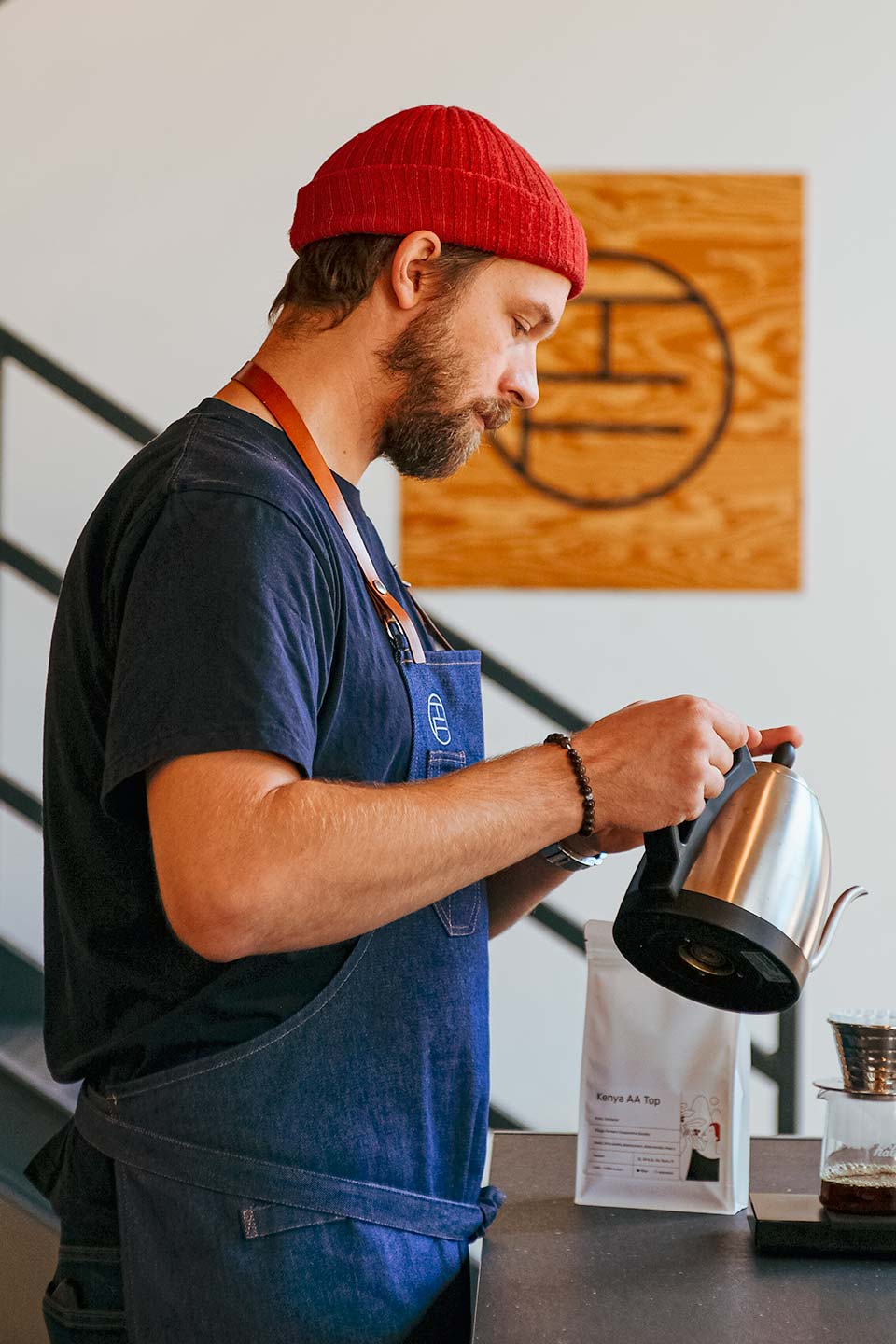
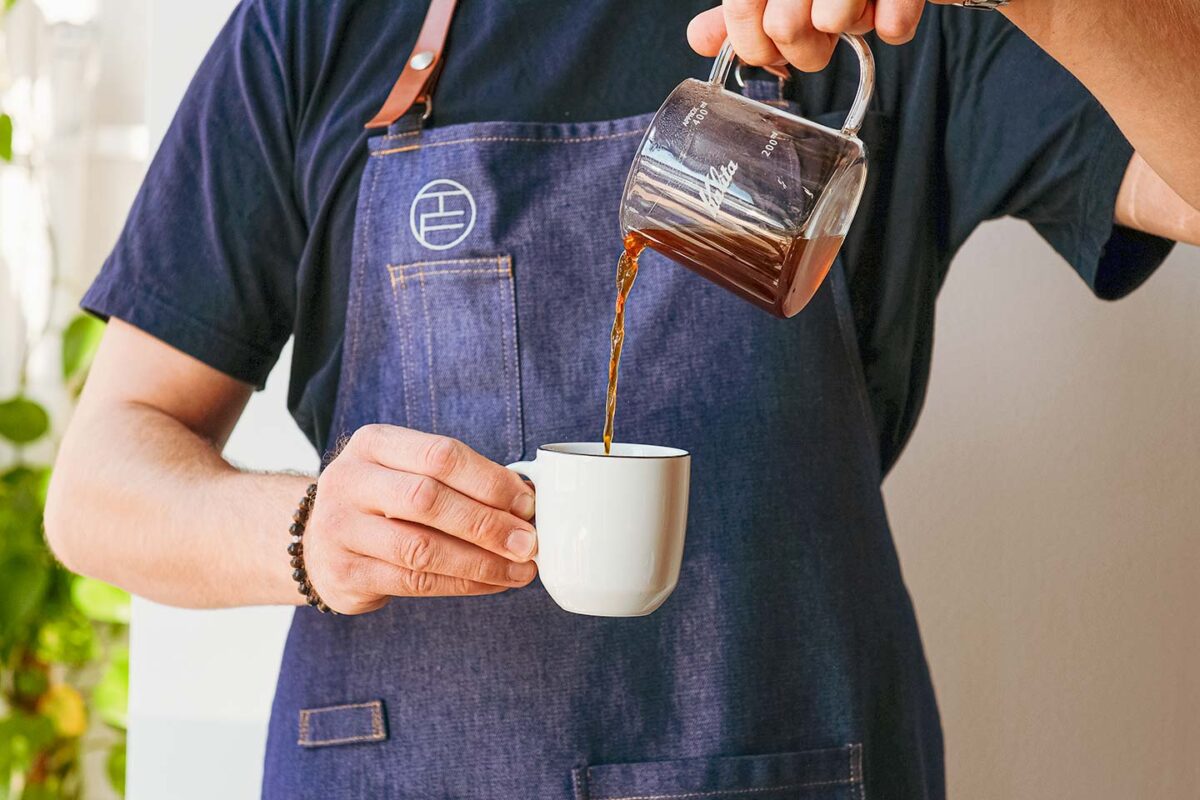
In 2017, Martin Beniak established Triple five coffee roasters, a specialty coffee roastery in his homeland of Slovakia. At the center of his passion is his admiration for the ethos of Japanese craftsmen, who pour their heart and soul into their creations. He found that the art of coffee roasting shared many of the same spiritual and mystical elements of Japanese craftsmanship. For Martin, coffee is not merely a product or beverage, but something more profound.
At one point, Martin found himself on the brink of a crisis, partly because of a lack of preparation and his innate optimism. He even considered closing down the business. However, with the support of those around him, he persevered and managed to grow the company to the point where it now employs a staff of 15. In his personal life, Martin is a father of two and feels that he has matured as a person. And his passion for coffee has remained unchanged since he was young.
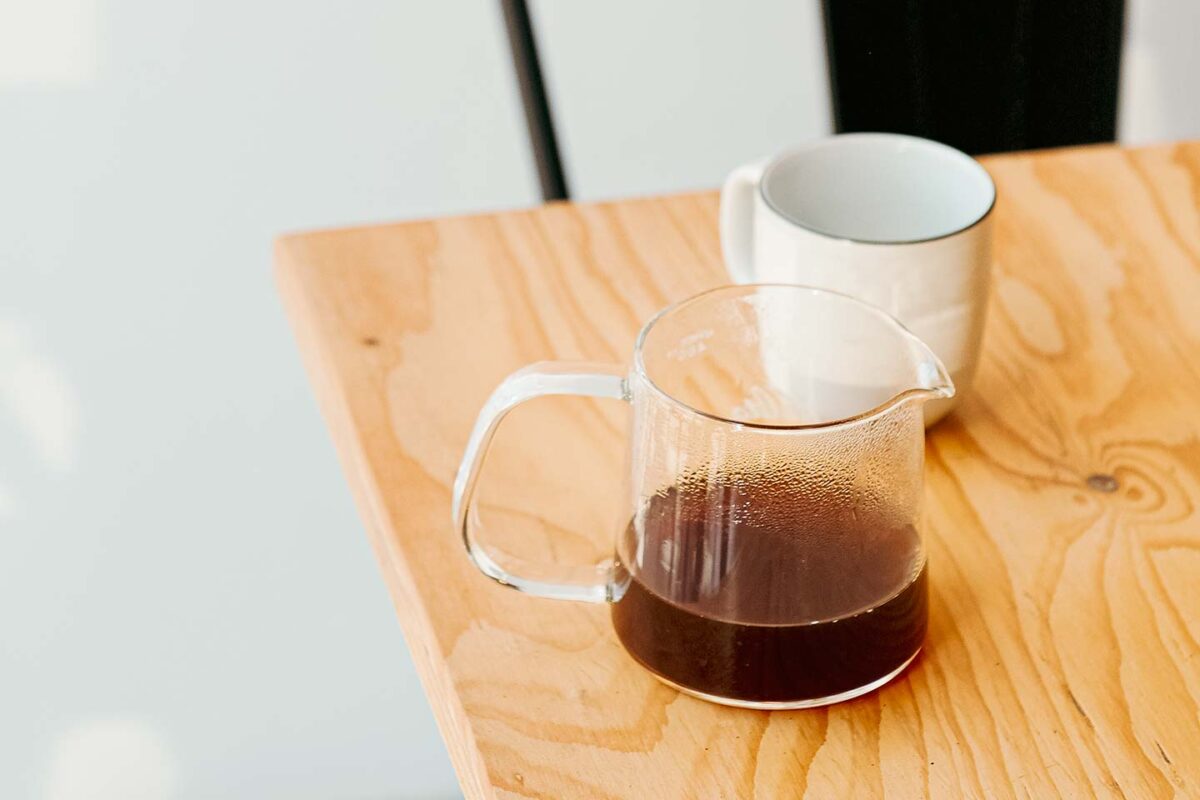
Staying true to who you are
All products and services have a life cycle. Once a new product or service gains unprecedented popularity, everyone jumps in to compete for a piece of the pie. This surge in competition boosts consumption and the industry as a whole, but it also leads to a mixed bag of players, making it difficult to guarantee quality across the board. Eventually, after the boom subsides, the field is cleared and only the real ones survive. Currently, the specialty coffee industry in Slovakia is experiencing such shifts.
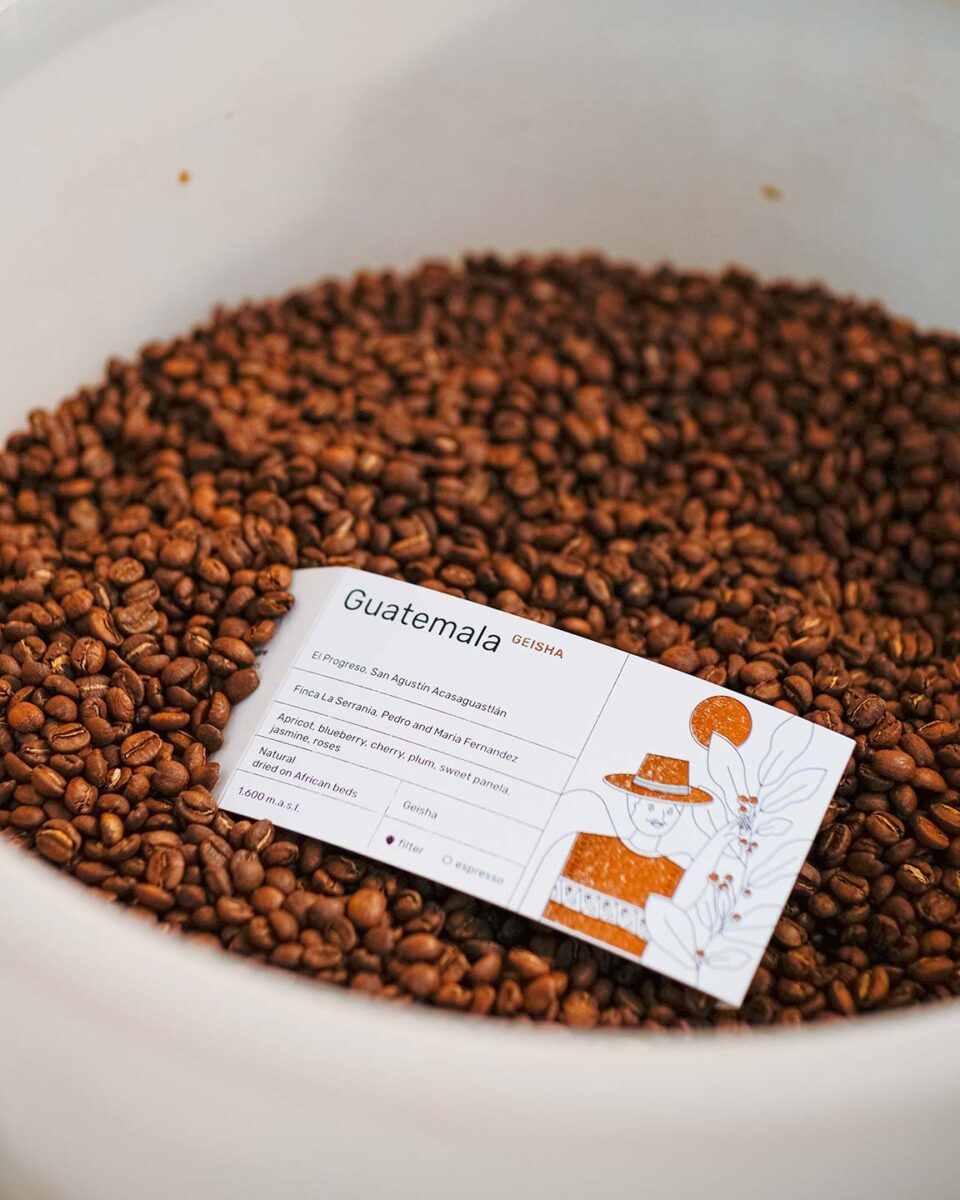
“Slovakia has a population of just over five million but has as many as 121 specialty coffee roasters,” Martin says. “In such a saturated market, it’s hard to say if those roasters are really serving specialty coffees and doing direct trade.
The definition of specialty coffee itself is vague in the first place. And it is unclear how many trading firms and roasters can accurately identify coffee that meets the SCA’s definition of specialty, which is a cupping score of 80 points or higher.
But that’s just the way it is. Of course, we keep an eye on our competition, but the more we look, the more disappointed we get. And I hear that even some of the great roasters out there are struggling.
Ultimately, we just need to focus on our own style and business and do what we can. It’s a waste of time to be too concerned about what others are doing, so we should use our time in a meaningful way. That’s one of the lessons I’ve learned in my life, especially in the six years since I started the business.”

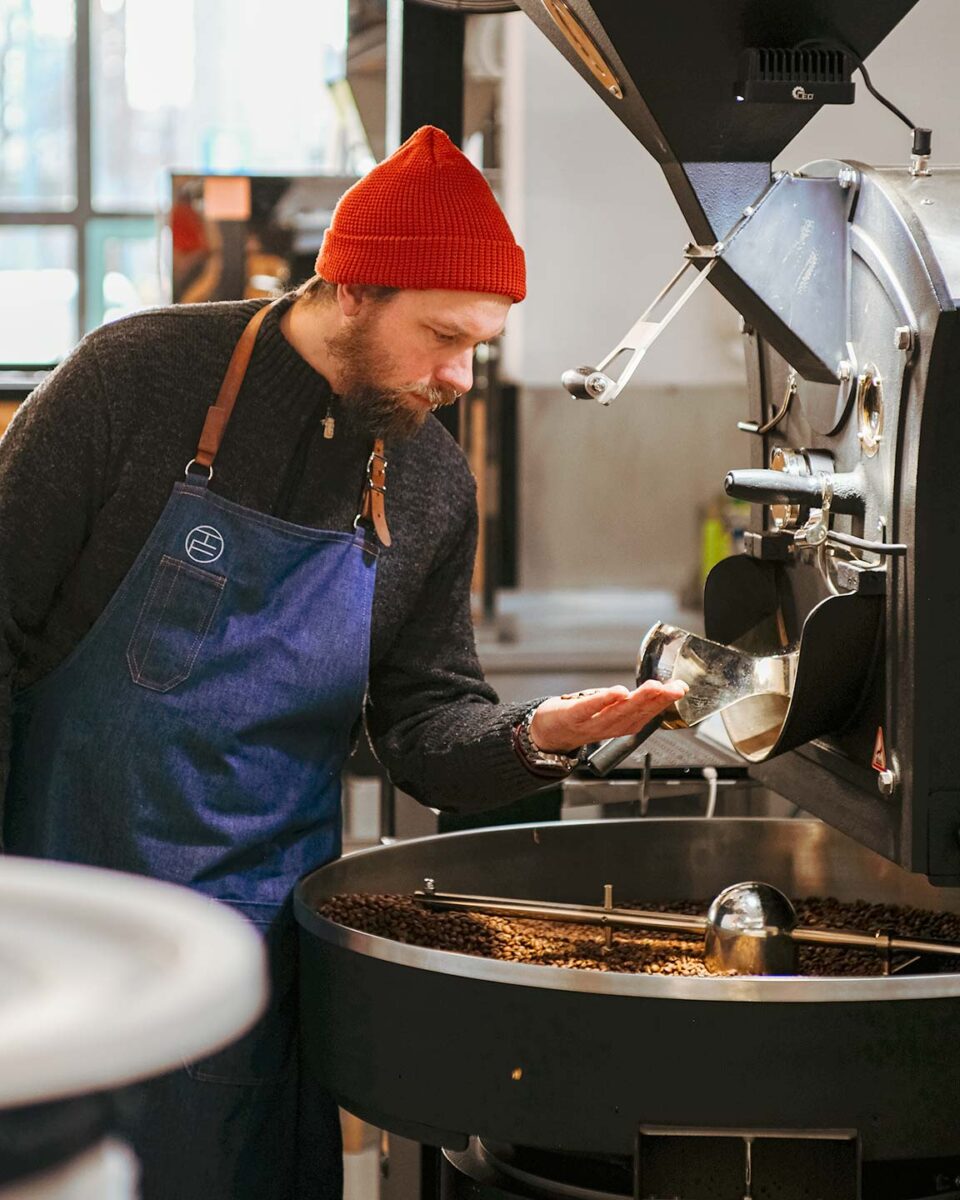
Dreams lost and found
Martin vividly remembers his first taste of Ethiopian Yirgacheffe, which completely changed his perception of coffee almost a decade ago. Its apricot-like taste and remarkably bright flavors left a lasting impression on him, and it’s a memory etched on his mind to this day.
Martin was so moved by this experience that he decided to work at a specialty coffee cafe. While working as a barista, he also spent a few months as an apprentice to a friend who was a roaster, learning the art of roasting. As he became more and more absorbed in the process, memories of his time in Japan flooded back to him.
“What really struck me was my interactions with all these different artists, from carpenters to plasterers to photographers to painters. I think Japan’s unique culture has a lot to do with its long history and the period of isolation it went through. Whether it’s swords or sculpture, there’s just something about Japanese craftsmanship that has this spiritual quality you don’t find in Europe or America.
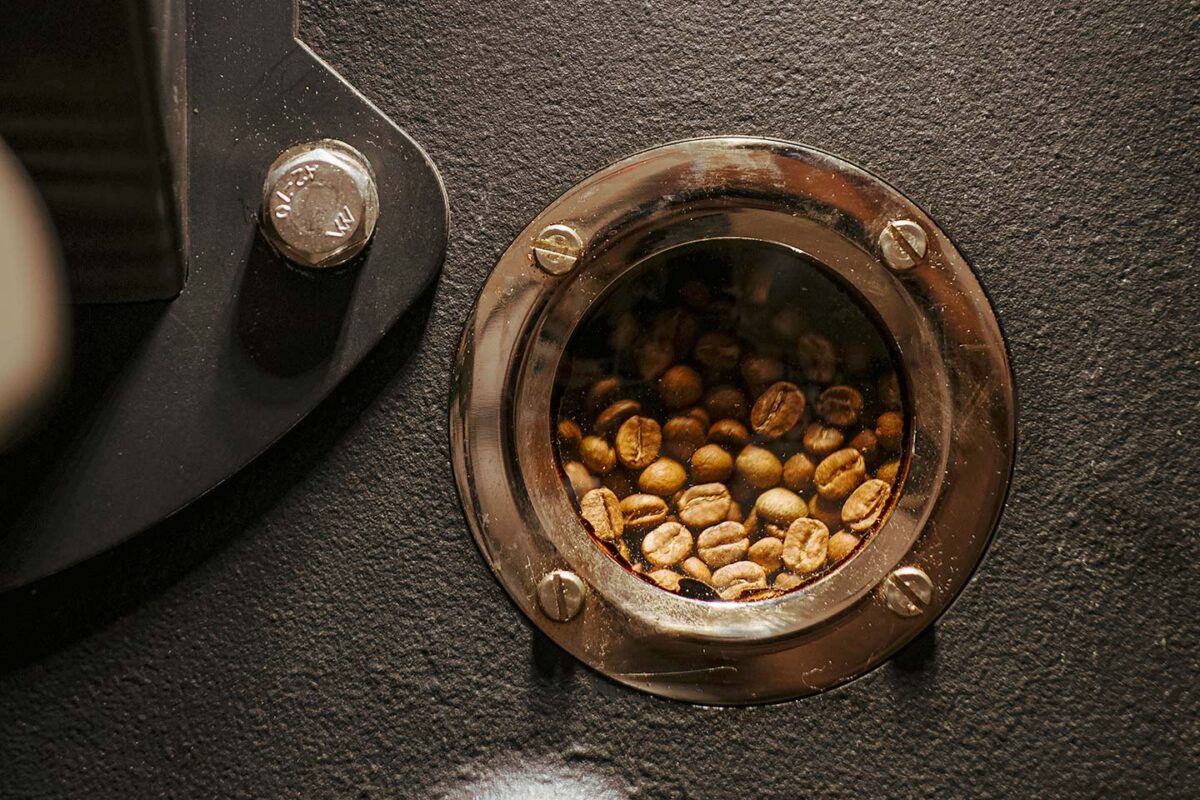
Meanwhile, in Eastern European countries like Slovakia, industries such as winemaking, food manufacturing, and carpentry were under government control during the 40-year period when the country was under communist rule. This led to a severing of the country’s manufacturing history, tradition, and culture. Since the regime’s fall and the arrival of democracy in 1989, Slovakia has been trying to rediscover and reestablish its identity. As someone born and raised in a country that has gone through such changes, Japan stands out.”
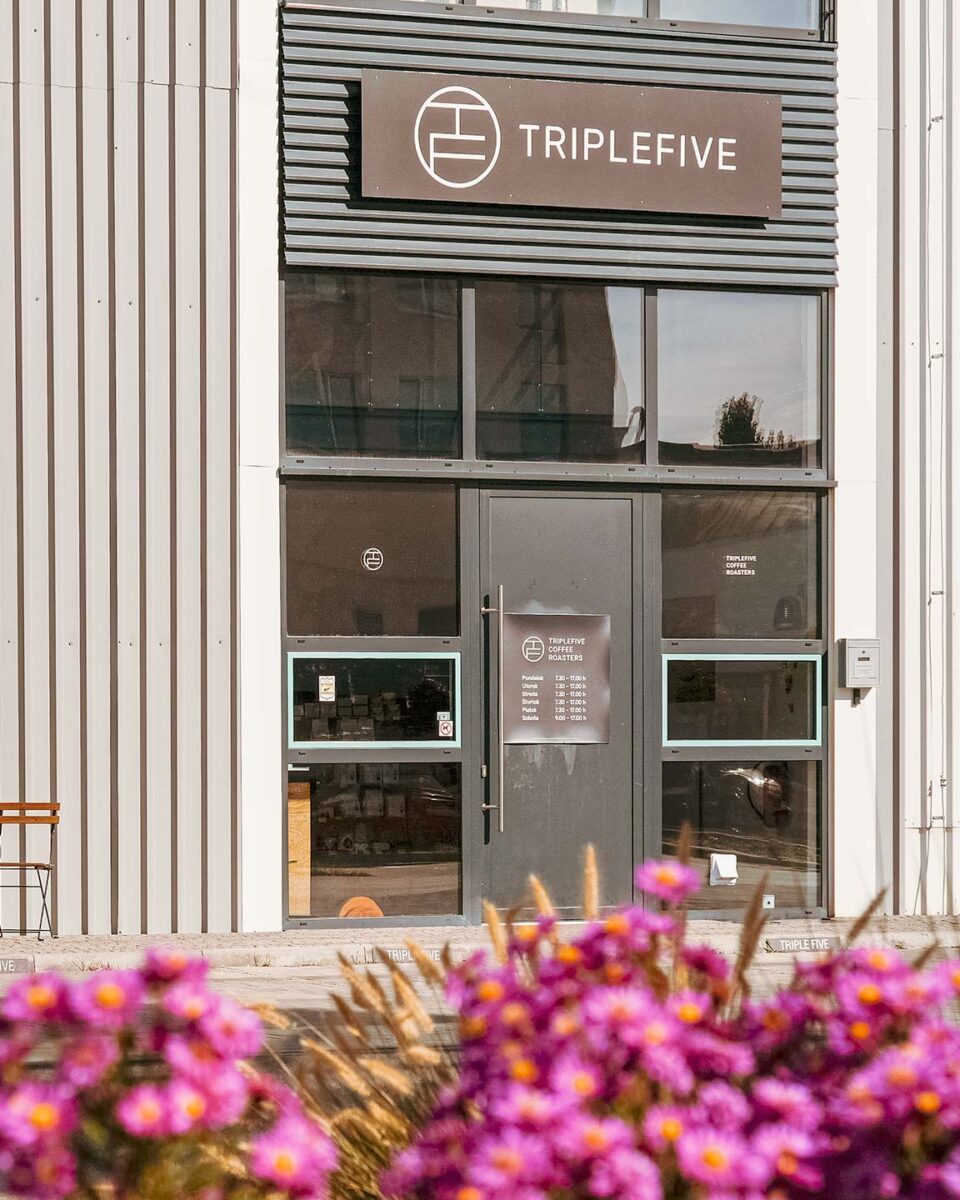
As the specialty coffee boom arrived in Slovakia and new cafes popped up everywhere, Martin knew he had to act fast and seize the moment. Driven by a sense of urgency, he founded Triple five, making verbal deals with two wholesale customers. He knew he wasn’t fully prepared. But his passion for coffee overpowered any doubts he had.
Speciality coffee has so many different flavors and expressions, it’s always exciting to discover something new. And for me, the coffee I roast is like a work of art I made with my own hands, or rather, something I put all my heart and soul into.”
Martin was initially hopeful about the future, but soon realized he had been too naive. The two deals he had counted on both fell apart, derailing his plans from the very start.
For Martin, the struggle with cash flow was a constant battle. He borrowed money from family, friends, and his wife just to keep the business running. But despite his best efforts, he found himself trapped in a cycle of borrowing to stay afloat. When the money he had borrowed from friends ran out, he knew he couldn’t keep going. “I can’t keep causing you trouble,” he told them. “I have to quit.” Martin’s dream was all but over.
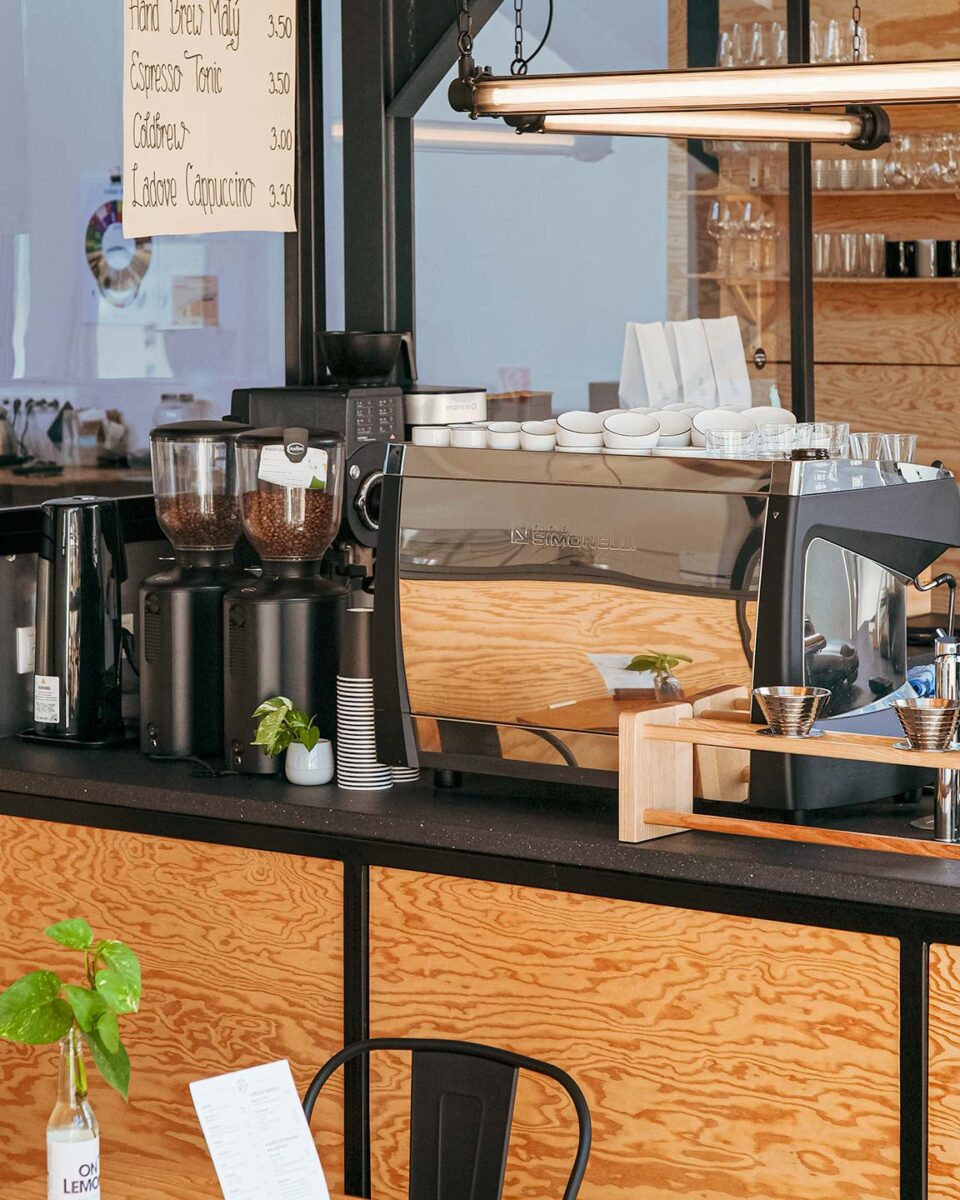
But as the saying goes, “When one door closes, another opens.” Just when Martin thought all was lost, a pastry chef friend came to the rescue. The friend had been saving up to open a cafe and asked Martin to join him. With a renewed passion, Martin jumped at the chance and threw himself into the preparations, securing a bank loan to get the project off the ground.
With limited funds at his disposal, Martin had to be creative when building the store. He took a DIY approach, building the counter and shelves himself using cheap plywood and enlisting the help of his carpenter relative, who was almost 80 years old at the time. Martin also found used espresso machines and grinders to save on costs. The store was finally ready to open in December 2019.
But things took a turn for the worse again when the Covid pandemic forced Martin’s cafe to close in March 2020. He was left in the dark about how long the closure would have to last and when the outbreak would subside. It felt like he was right back where he started, at the rock bottom.

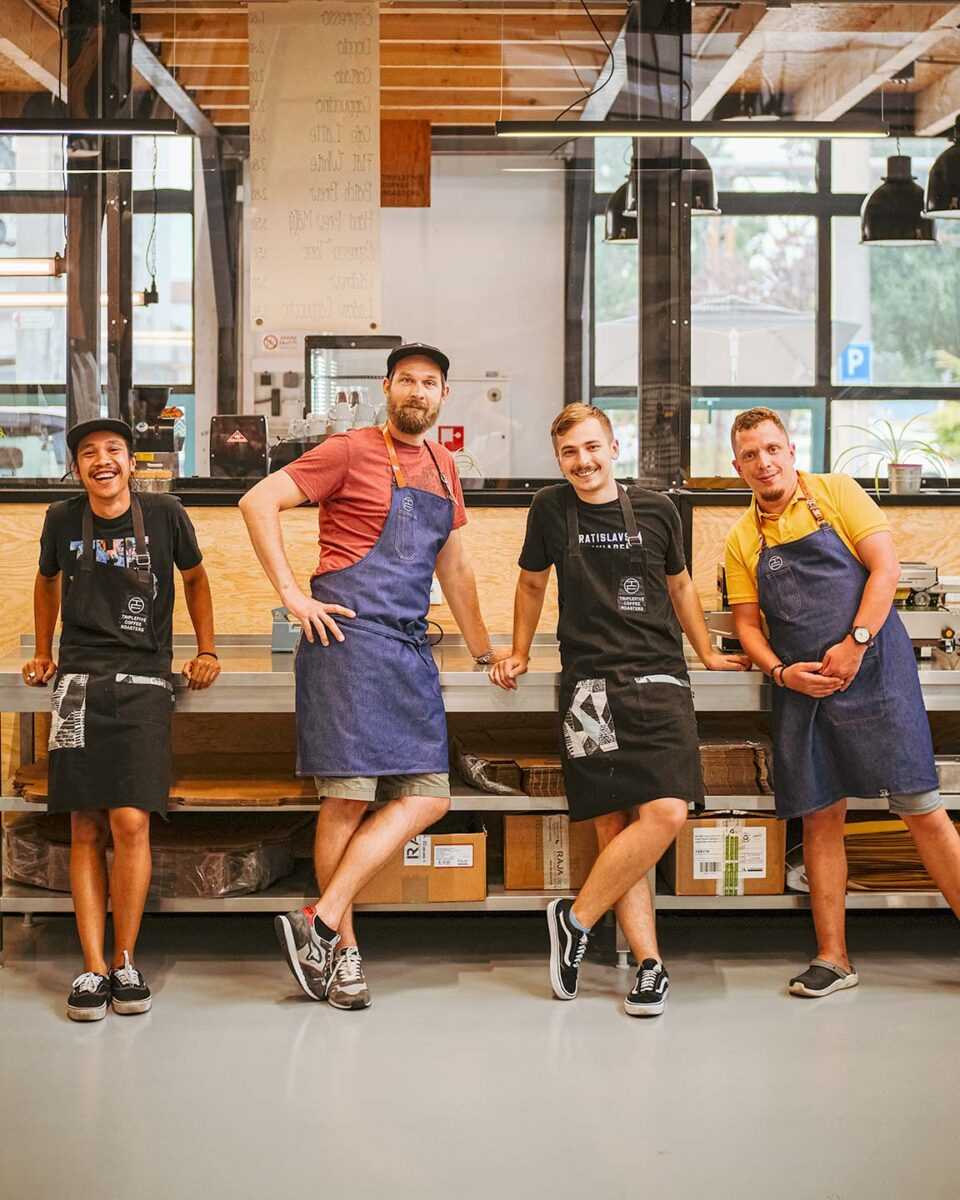
Building genuine relationships
Martin says he started off doing everything himself, but now he manages a team of 15 people. While he used to be pretty strict with his staff, he’s learned that the best leaders are those who can balance toughness with softness.
Martin is committed to hearing out his staff, and this is evident in the monthly general meetings he holds at Triple five. During these key meetings, he discusses the company’s direction and upcoming products, and even part-time staff are encouraged to join in. Everyone sits in a circle and shares their thoughts, creating an open environment free of hierarchies and boundaries.
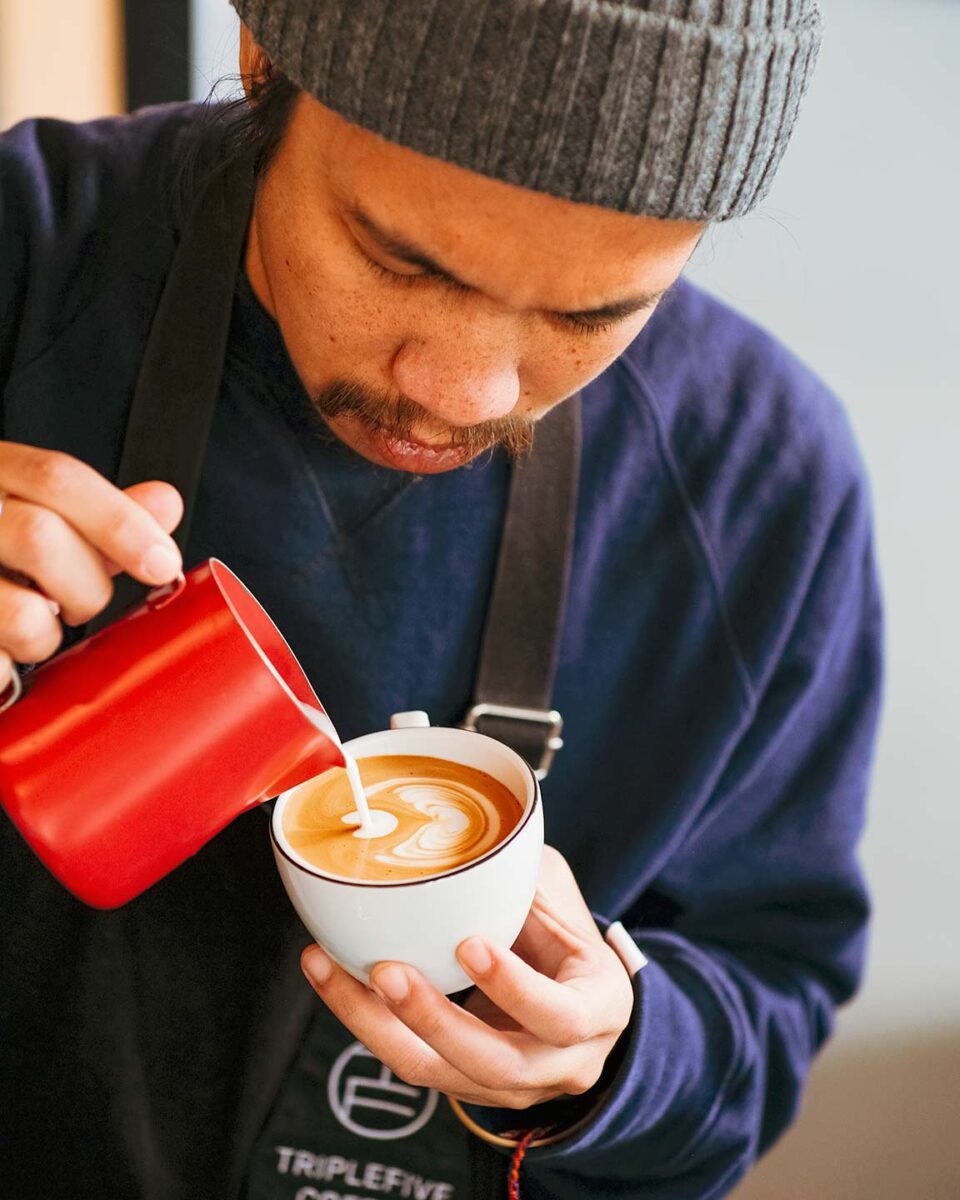
“Sometimes you need to be tough and say things you have to say,” Martin explains. “Many people make cappuccinos, lattes, and cortados that just look like those things. You have to start by learning the basics by following a certain procedure and recipe. Keeping the store clean is also a must if you want customers to trust you.
Even when I have to be tough with our staff, I don’t want them to feel like I’m just blaming them for mistakes. Instead, I try to look for solutions, make suggestions, and encourage them to move forward in a positive direction. If there’s an opportunity for them to learn and grow, I’m always willing to help. In fact, the most rewarding moments for me are when my staff members do better than I do. I want them to surpass me in every way possible.
“I believe that actions speak louder than words when it comes to showing your true value. That’s why I work hard alongside my staff and roll up my sleeves and carry heavy bags of green beans when needed. And when there’s a problem in the company, I always start by looking at my own actions first, assuming that I did something wrong.”
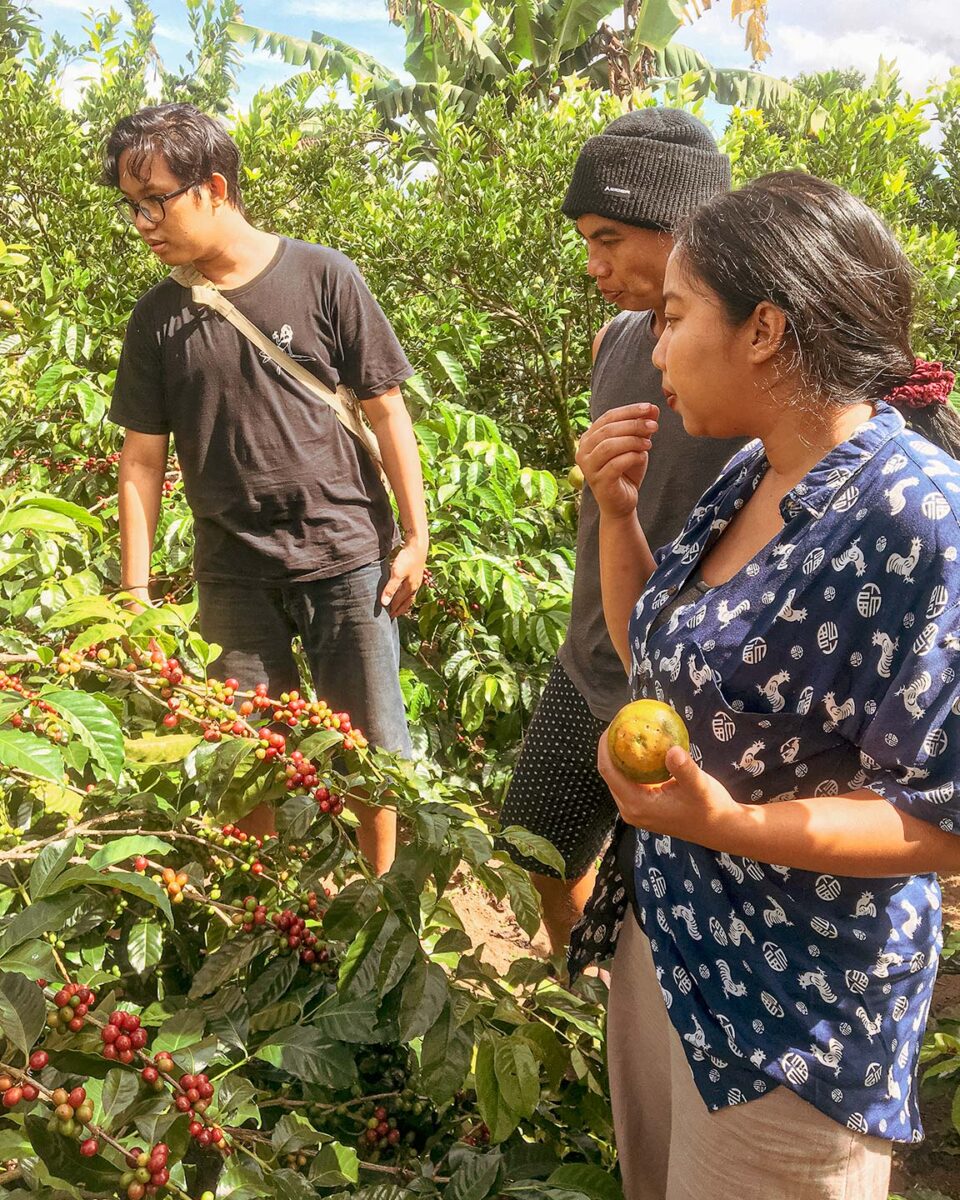
Martin sees everyone involved in his business – from his staff to his producers and clients – equally, as human beings. One thing that sets Triple five apart from other small roasteries is that it directly trades with coffee producers in countries like Thailand, Guatemala, Panama, and Costa Rica. Martin keeps the contact information of these producers on his smartphone and communicates with them regularly through messaging apps like WhatsApp and LINE. To Martin, this direct communication is what defines true direct trade.
“Maintaining direct trade is a real challenge,” Martin admits. “It takes a lot of time and effort, and there’s a lot of uncertainty involved. When you buy coffee from a trading company, you don’t have to deal with all the complicated paperwork that comes with trading, and if there’s a quality issue, you can just complain to the company and get a refund. But with direct trade, we have to handle everything ourselves. That’s why we’re very open about what happens at the production site and during transportation, as well as any issues that arise on our end.
Despite the challenges, direct trade is worth it for the special opportunities it brings. At one of the Guatemalan farms we work with, there’s a mutant coffee variety called ‘Kimono.’ Since the harvest was small last year, we were the only ones in the world who could buy it. And next year, we’ll be the only ones receiving their Geisha Anaerobic. It’s incredible that we have access to these unique coffees that no one else in the world does.”


Believing in human goodness
Although there was a point when Martin hit a rough patch and considered closing the business, it was his passion for specialty coffee that kept him from giving up. In a true testament to the power of his passion, two friends even offered to lend him money when he was in financial trouble, even though he had never asked for their help. Although he initially hesitated, Martin eventually decided to accept their generosity.
Martin explains that although his friends certainly live comfortable lives – one of them a Brazilian diplomat and another from Switzerland, where wages are three to four times higher than in Slovakia – he believes that was not the reason they offered their support. “I think they wanted to take part in my dream. I will be able to pay them back a full amount soon.”
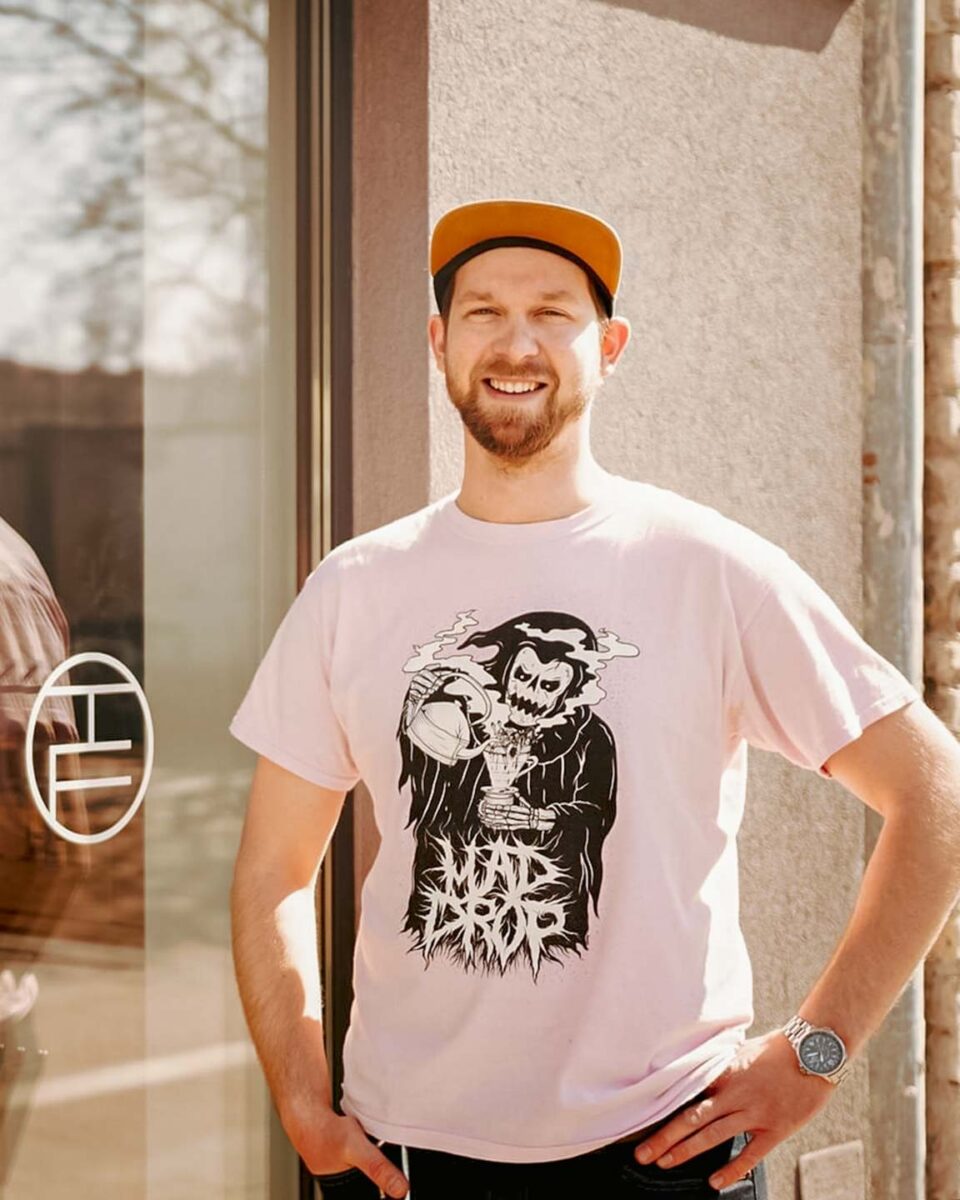
During his time in Japan, Martin hitchhiked across the country and had a memorable experience that still influences him today. A woman in her 70’s picked him up, invited him to dinner and karaoke with her friends, and even offered him a place to stay. Despite meeting Martin for the first time that day, she showed him incredible hospitality and warmth. This experience left a lasting impression on Martin, reinforcing his belief in the kindness and goodness of people.
“When Covid hit us hard, the landowner of our cafe’s property gave us a nearly 50% discount on rent. Even when we fell behind on payments, they were patient with us. I believe it’s because I try to be honest and open with people that kind-hearted people gather around me and lend a helping hand. Their support has been invaluable to me, and it’s inspired me to want to help others in the same way.”
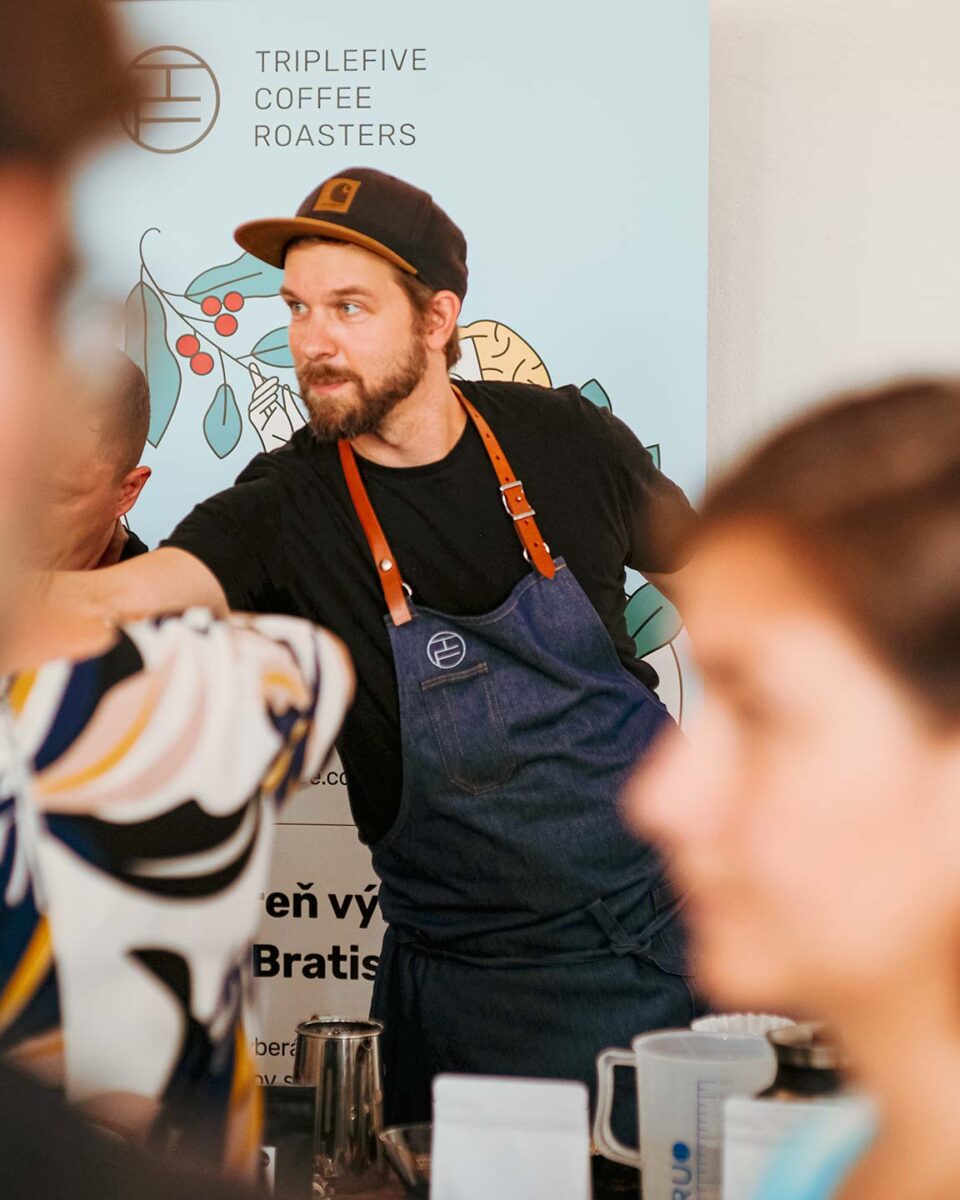
Martin’s gullible nature has made him vulnerable to being taken advantage of more than once. While he has learned that it’s sometimes important to say no, he has never let these negative experiences make him suspicious or distrusting of others.
“I know I need to be careful, not just for myself and my family, but also for my business. But I also don’t want to close myself off from opportunities.
I try to stay optimistic and focus on the good in others and the world. When my wife scolds me for making the same mistakes I made before, I reassure her that people are watching my good deed.”
Text: Tatsuya Nakamichi
MY FAVORITE COFFEE
As someone who works in the coffee industry, I taste all kinds of coffee from all over the world as part of my job. But unfortunately, over time, the novelty wears off and the specialness of each cup fades. That’s why I cherish those rare moments when I stumble upon a new or unexpected cup of coffee that truly excites me. It’s a reminder of the preciousness of everyday life.









